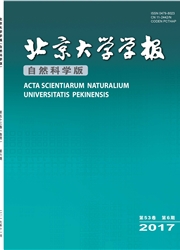

 中文摘要:
中文摘要:
以重庆市酉阳土家族苗族自治县为例,利用参与式农户评估法(participatory rural appraisal,eRA)对酉阳县6个典型乡镇进行农户生计调查,并结合统计数据,揭示该县农地边际化的特征,反映农户生计策略对农地利用的影响。结果表明:酉阳县近10年来,农作物播种面积呈下降趋势,年末常用耕地面积呈减少趋势,酉阳县由于地形地貌因素和人为因素的影响出现较多弃耕撂荒现象。酉阳县也存在大量自然灾害隐患,而这些隐患威胁着农作物播种和耕作等农业生产活动。酉阳县农地利用过程中出现了边际化现象。通过农户生计策略和农户的农地经营行为两大方面来解释农地边际化可知,受自然地理环境的胁迫、小规模农业经营以及农业生产条件恶劣等综合因素的影响,农户的生计呈现多样化。农业收入较低,农业生产的主要劳动力常年从事第二、三产业是导致农村劳动力不足及农地边际化的重要原因。通过县域与农户尺度的实证研究,能够较好地解释农地边际化过程与农户生计策略之间的微观互动机理。
 英文摘要:
英文摘要:
The authors take the Autonomous County of Tujia and Miao Nationality of Youyang, Chongqing, as an example, and adopt the method of participatory rural appraisal (PRA) to study the livelihoods of rural households in six typical towns. Based on the investigated data and the statistical yearbooks, the study demonstrates the marginalization of agricultural land and presents the responses of farmers to agricultural land use. The results are as follows. During the recent 10 years, the sown area of farm crops and the year-end cultivated area in common use are decreasing. Geographic, geomorphic, and anthropogenic factors have resulted in the abandonment of agricultural lands. Moreover, potential natural disasters threaten agricultural production, including sowing and cultivation. For the diagnosis factors mentioned, it can be predicted that land marginalization has emerged in Youyang. Agricultural land use, especially the marginalization of agricultural land, has been driven by farmer's livelihood strategies and their agricultural land management behavior. The integrative factors, such as threats of geographic environment, small-scale agricultural business, and bad agricultural production conditions, have influenced this behavior as well. Consequently, the livelihood strategies of farmers have become diversified. The fact that income from agricultural production is comparatively low and that the main labor force of agricultural production engages in the secondary and tertiary industries are the primary causes of the shortage of rural labor force and the marginalization of agricultural land. Imitating the process of the county and studying the micro response of the farmer can explain the microcosmic interaction between the marginalization of agricultural land use and farmers' livelihood.
 同期刊论文项目
同期刊论文项目
 同项目期刊论文
同项目期刊论文
 期刊信息
期刊信息
